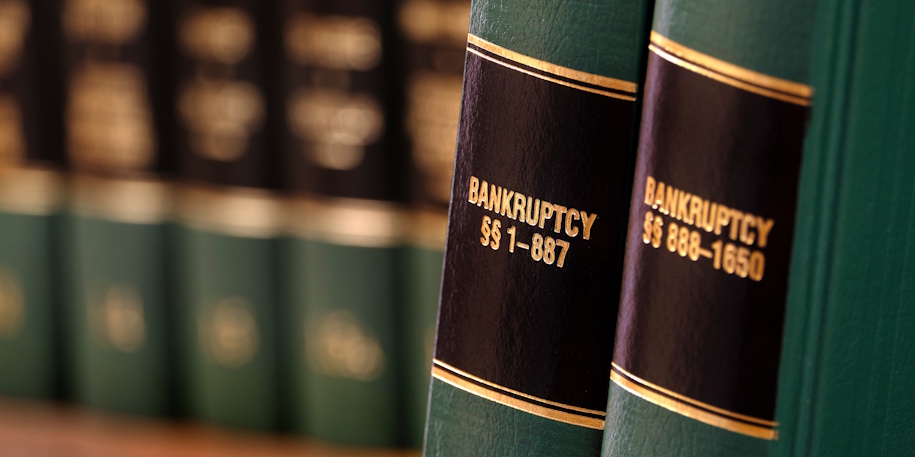Learn About the Three Types of Bankruptcies and When They’re Most Relevant to Your Circumstances
When financial pressure starts to weigh on your small business, understanding your options can be the difference between making a full recovery and going under. Whether you’re dealing with business loans, vendor payments, tax debt, or lease payments, it’s important to know about the legal protections in place that can help you regain stability.
Bankruptcy is one of those legal protections, and it’s a vital one for business owners who’ve personally guaranteed their debts. Before dismissing it as a last resort, it’s worth learning what bankruptcy is, how it works, and when it’s your best path forward.
Small business owners should familiarize themselves with the three types of bankruptcies, the criteria for qualifying, and how each option affects your business operations.
What Is Bankruptcy?
At its core, bankruptcy is a legal process that allows individuals or businesses to reduce or eliminate their debts under the protection of the federal court system. It offers financial relief and a structured plan to reset your finances. When correctly leveraged, bankruptcy is a strategic tool that gives business owners a legal way to financially recover.
When people ask “what is bankruptcy?”, they often don’t realize that there are three types of bankruptcies that may apply to business owners. You’ll find more information on all three types in our essential reading list below.
Chapter 7 Bankruptcy
This is a liquidation bankruptcy designed to discharge unsecured debts. Business owners may qualify even if their income exceeds state limits, provided most of their debt is business-related (non-consumer debt). It’s a fast and cost-effective way to eliminate debt and start fresh.
Chapter 13 Bankruptcy
This option is ideal for those who have regular income and want to restructure their debt into a three- to five-year repayment plan. It allows you to retain important business assets and gradually pay down what you owe.
Chapter 11 Bankruptcy
Primarily used by corporations and larger businesses, Chapter 11 allows you to continue operating while restructuring debt. However, it’s rarely cost-effective for small businesses due to its complexity and high legal fees.
Essential Reading for Business Owners Considering Bankruptcy
Refer to the following resources to assist your evaluation process as it relates to small business bankruptcy.
6 Options for Small Business Debt Relief
Small business owners overwhelmed by loans, back taxes, vendor fees, or lease defaults have multiple paths to recovery. Chapter 7 and Chapter 13 bankruptcies often emerge as the most financially feasible options, particularly when business debt is personally guaranteed. Consulting a small business bankruptcy attorney ensures you choose the best plan for long-term relief. Read more.
Is Bankruptcy a Constitutional Right?
If you’re wondering what bankruptcy is at its legal foundation, look no further than the U.S. Constitution. Bankruptcy law has been a protected right since 1787, designed to give people and businesses a second chance. It’s not about punishment; it’s about protection. Filing bankruptcy is a right, not a failure. Read more.
Small Business Debt? Bankruptcy Law Is on Your Side
Debt settlement or bankruptcy can offer the reset you need without shutting down your business. If you’re operating as a sole proprietorship, these solutions are even more accessible. Legal support is crucial to identifying which route preserves your business operations while resolving your financial liabilities.Read more.
Is Bankruptcy My Best Option?
For many individuals and small business owners, bankruptcy is the right solution. Real-life scenarios demonstrate how people with medical debt, tax burdens, or personal guarantees on business loans have used Chapter 7 or Chapter 13 bankruptcy to protect assets and eliminate debt. A qualified attorney can help you decide whether bankruptcy or another form of relief is best. Read more.
Worried About Filing for Bankruptcy? Learn the Facts and Overcome the So-Called Stigma
Don’t let outdated perceptions stop you from considering bankruptcy. Chapter 7 or Chapter 13 can eliminate unsecured debt, stop lawsuits, and even improve your credit over time. For business owners, bankruptcy can be the most strategic move toward financial recovery. Read more.
Make Too Much for Chapter 7 Bankruptcy? Be Sure to Check the Back Door
Even if your income is above the median, you may still qualify for Chapter 7 bankruptcy if your debts are primarily non-consumer (such as taxes or business loans). This legal nuance allows you to bypass the means test and potentially eliminate both personal and business debt. A skilled attorney can help determine if this exception applies to you. Read more.
Your Path Forward Starts With Knowledge
Knowing what bankruptcy is and understanding the three types of bankruptcies are essential steps for any small business owner in financial distress. A strong educational foundation paired with the right attorney can help you make informed decisions about your financial future.
Remember, bankruptcy isn’t the end of your business. It might just be the beginning of your comeback.

